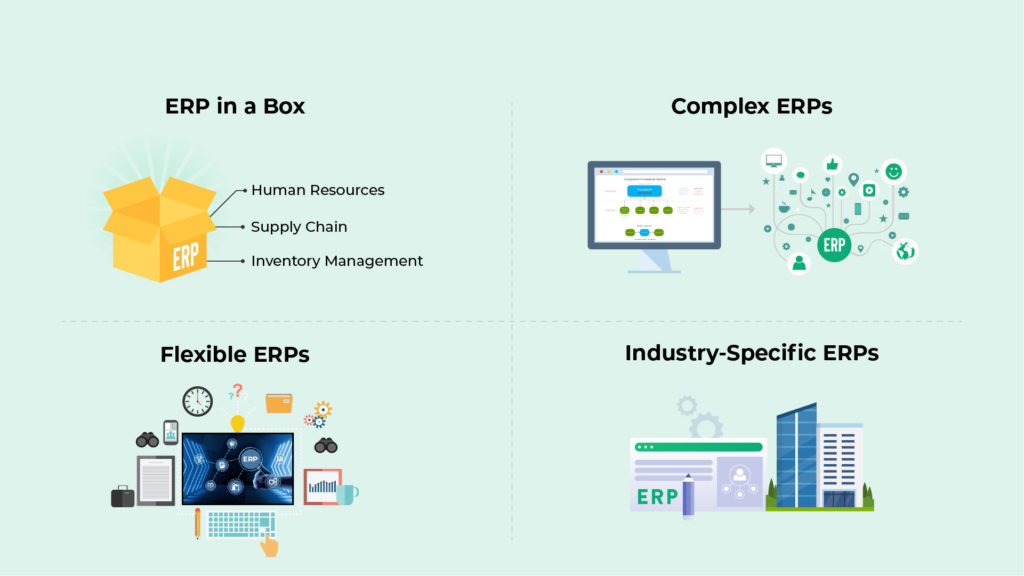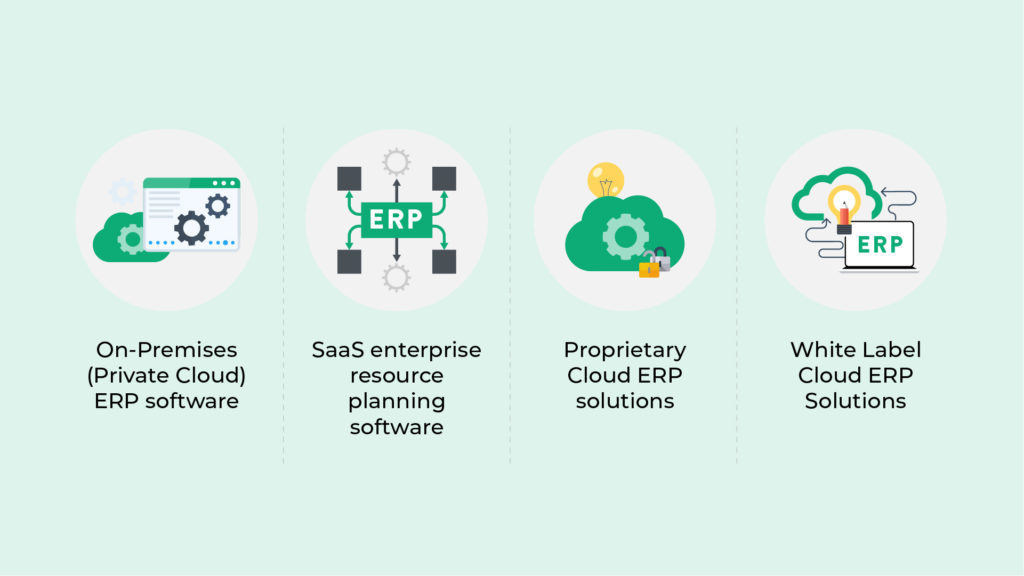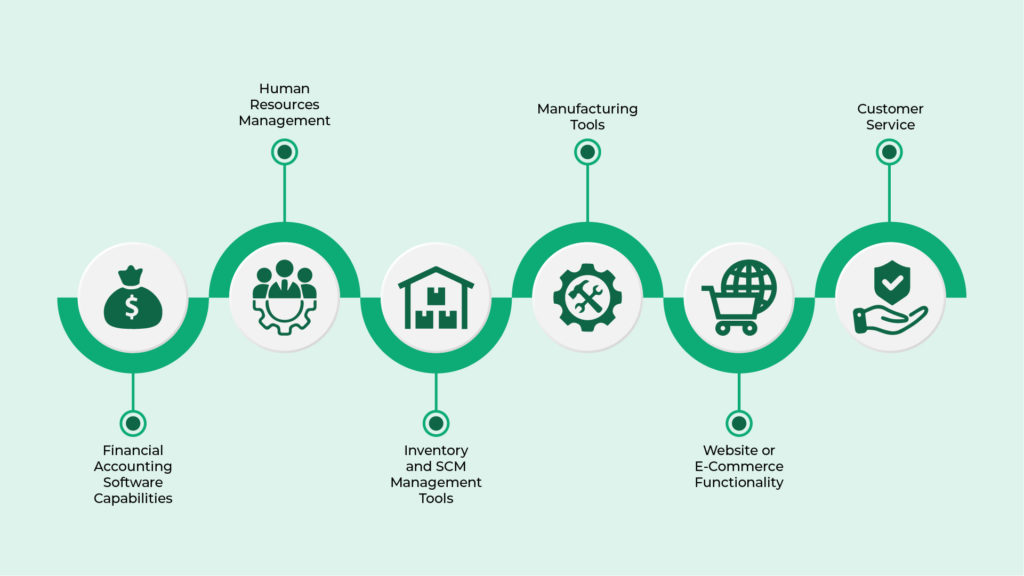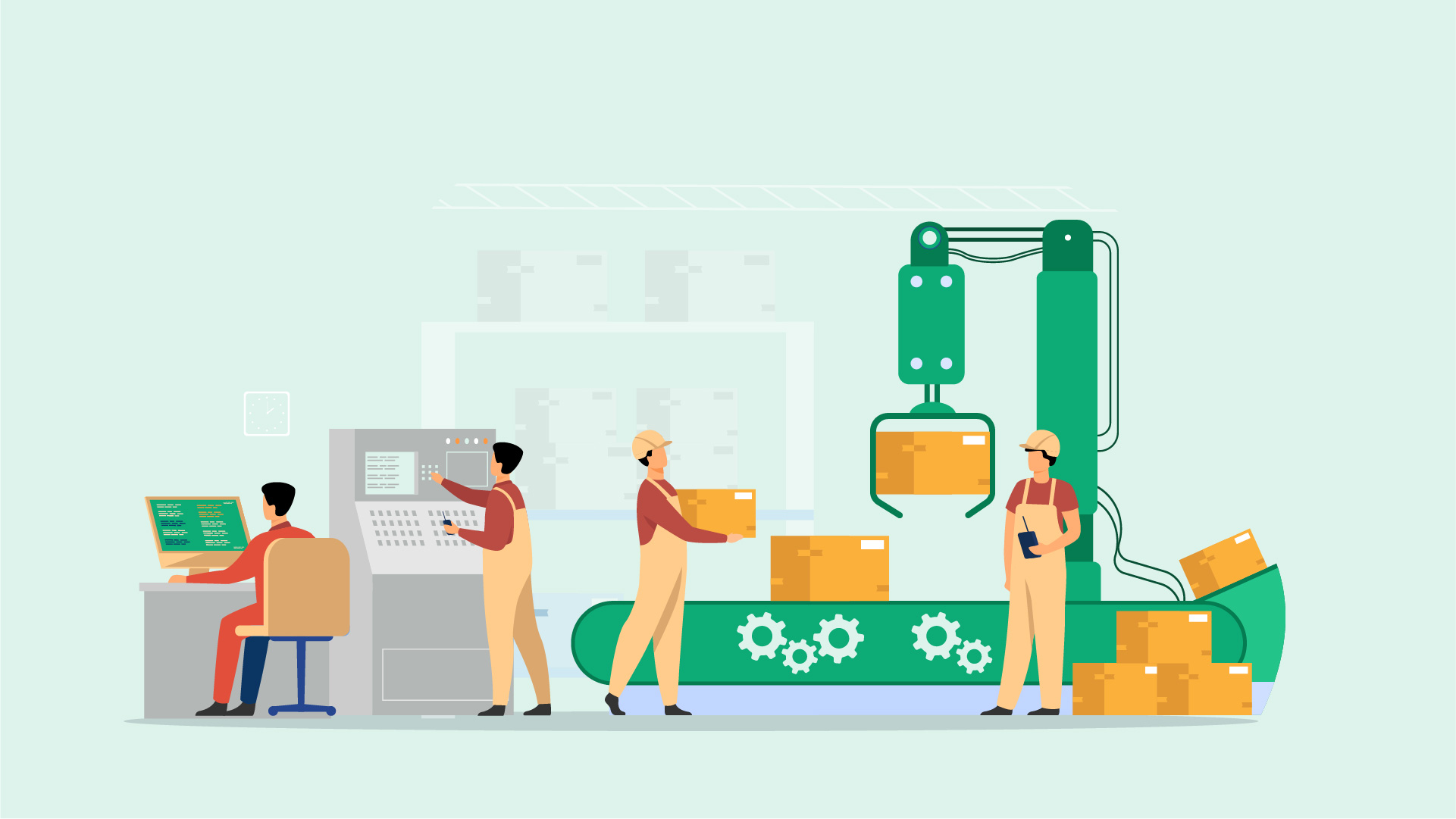Enterprise resource planning (ERP) refers to tools used to manage and view data that impacts a business’ decisions. ERP software solutions are varied, with different functions and specialties. Typical use cases include manufacturing ERP software, accounting software solutions, and marketing and customer relationship management tools. Integrating and centralizing all your business processes allows you to easily manage and automate a wide range of business operations.
Some of the best-known ERP system examples on the market include Oracle Netsuite ERP, Microsoft Dynamics, Odoo, and SAP S/4HANA, but there are several alternatives on the market that offer better value and greater flexibility. Modern ERP software systems are extremely feature-rich and use innovative technology, like artificial intelligence, to optimize and enhance business data.
Different Types of ERP Software
ERP software is often divided into categories according to its end-use applications or specializations. With these categories, we can make even further distinctions, e.g., any of these ERP software examples could refer to either a cloud-based ERP system, an on-premises-based ERP, or a hybrid ERP system.

ERP in A Box
An ERP-in-a-box solution usually refers to an ERP solution that is easy to use and install but can’t be otherwise configured or customized. These solutions are plug-and-play, which means they meet set core business functions (e.g., human resources, supply chain, or inventory management), but it’s not possible to utilize add-ons. These solutions are best applied to cost-constrained small businesses with low growth ambitions.
Complex ERPs
Large-scale or very complex ERPs are built according to a framework provided by the business, according to their needs. They are highly customized according to the requirements of the business or industry. Large enterprises most often use these ERP systems.
Flexible ERPs
Flexible ERPs are the middle ground between the previous two examples. They can be used out of the box but are fully customizable to better meet your needs. They are best suited to medium-sized or smaller businesses with more complex needs.
Industry-Specific ERPs
Industry-specific ERPs have highly specific features and terminology designed for a specific industry. Most ERP software in this category does not have configuration or customization capabilities.
Different Cloud-Based ERP System Examples
Many businesses prefer using a cloud ERP system to manage their business processes (e.g., inventory management, financial management, human resources, and supply chain management). Cloud ERP systems can be classified as follows:

On-Premises (Private Cloud) ERP software
When a company chooses a private cloud enterprise resource planning system, data is stored on on-premise servers owned and managed by the company itself. The benefit of this approach is that you can combine your traditional on-premise ERP software solution with a private cloud. This is highly customizable as you can integrate it with most enterprise modules and tools. On the downside, it’s a very expensive approach as you’ll need to invest in local servers and databases, annual maintenance, licensing, and support. It’s also less secure. Most attacks occur via users’ workstations (e.g. phishing scams), so you’ll be more vulnerable to hacking due to human error. There’s also a greater risk of physical damage, e.g. a fire alarm drenching servers or a natural disaster destroying your premises. On the upside, you’ll have full control over the entire system.
SaaS enterprise resource planning software
Software as a Service (SaaS) is the most common cloud ERP software system deployment. With this model, the business doesn’t own the software. Data is stored in a public cloud where users have access to their specific company data instance based on granular security permissions for an affordable monthly fee. This method is secure, flexible, and robust enough to be highly customized and adapted according to your business needs. It can also be implemented quickly, automatically patched, and updated regularly.
Proprietary Cloud ERP solutions
A proprietary cloud ERP solution is similar to the private cloud, but the ERP vendor hosts the instance of the ERP software in their own data center. This provides great flexibility, reduced costs, and greater accountability and security. Small businesses can expand their cloud solution as their needs grow without the added cost of acquiring their own IT team to maintain the system.
White Label Cloud ERP Solutions
A white label cloud ERP system is hosted in a public IaaS (Infrastructure as a Service), such as AWS, instead of the ERP vendor’s data center. The deployment is usually either arranged by a vendor or a reseller. In the former scenario, the vendor is responsible for the data center, its management, and its implementation. The reseller model is generally considered riskier, as there are often some question marks around which party is responsible for updates or incident management.
Features of a Modern ERP System
ERP systems are designed to streamline business processes using a singular user interface to provide a convenient, seamless user experience. Several layers work together to make this happen, including a database where financial, inventory, and customer data is housed, the ERP user interface, and the program that houses the rules and logistics of the system.

Enterprise resource planning systems are extremely comprehensive and comprise many features and capabilities every ERP should offer:
Financial Accounting Software Capabilities
ERP solutions can automate payroll processes, simplify financial management, and analyze and compute financial data for reporting purposes within seconds. It can conduct cost analyses and forecast future growth to reduce human error, free up your employees’ time and drive your company’s ability to make data-driven decisions.
Human Resources Management
ERP solutions can help companies hire, train and track the productivity of their employees. Many industry-specific ERP solutions also have human resources management features like timesheets, payroll management systems, and employee surveys and feedback systems.
Inventory and SCM Management Tools
Inventory management tools help companies track stock, set price points, and even locate and pull stock within the warehouse, depending on your needs. This can reduce wastage, supply issues like overstocking, and other costly errors within your distribution hub.
Manufacturing Tools
Manufacturing ERP software or manufacturing resource planning software provides production management control, process management, and synchronization and quality management tools. The system can also conduct financial analysis and adjust processes based on forecasting and cost analysis.
Website or E-Commerce Functionality
Some ERP tools include features that enable businesses to design and configure their websites or virtual storefronts, including payment collection and processing features.
Customer Service
Customer service may be one of the most important features an ERP software module can provide, whether you are a small business or a large enterprise. You can use your ERP to boost customer service, record customer data, reduce wait times and improve order management and fulfillment according to client needs.
Conclusion
Unfortunately, there is no one-size-fits-all ERP solution that works for everyone’s business and budget. There are many different types of ERP systems, tools, functionality, and even deployments to choose from. However, if you need help finding a solution that matches your needs, speak to 10X ERP. We build, implement, manage and maintain our own software solution directly with our clients so that you can make the most of your ERP system investment at all times.
